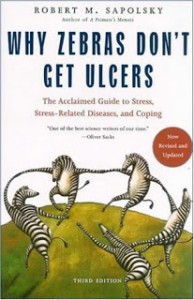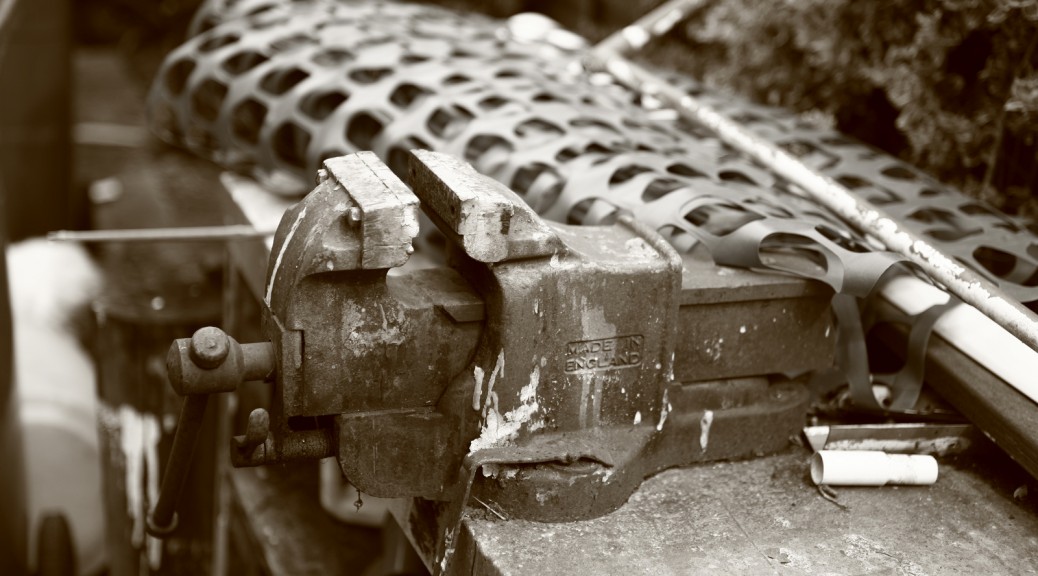Featured photo courtesy of Dave Stokes.
Anyone who knows me knows me as a very health-conscious guy, but not a guy free of vices. I promote habits that produce happy, healthy, strong, productive people, but in the right context I also promote some activities that directly oppose my usual recommendations.
Am I inconsistent? Maybe, but really it’s all part of the plan.
Background
My motivation for writing Sustainable Balance stems from my desire to design a lifestyle that maximizes success, while being flexible enough to allow for a heck of a lot of enjoyment and spontaneity along the way without stressing about perfection. Certain behaviours, activities, or indulgences can be seen as generally “good” or “bad”, when I believe that whether or not these things deliver a net benefit is completely dependent on the context. Being too stringently “good” all the time can lead to resentment and an eventual abandonment of all good intention. Conversely, being “bad” too often will lead to negative consequences that compound over time. I have found for myself and many others that what really determines success are habits, i.e. what you do most of the time. Not all.
In the right context, deviating from what you think is healthy or responsible can be the best decision if it leads to a great degree of enjoyment, and you can recognize that this is not a habit, but a conscious indulgence based on certain external factors that make compromising attractive. Of course, these are highly personal decisions with different degrees of sensitivity, and there will be certain things that some people will adamantly refuse for a variety of reasons. Most people, however, enjoy their vices, and see moving towards a healthy lifestyle as having to leave them permanently behind, which can prevent action! I don’t agree with this notion, and feel that you can be extremely healthy with some supposedly unhealthy junk mixed in there. It’s all about the context in which you indulge. To be clear, I’m talking about vices that only affect the individual making the decision, and not other people (i.e. if murdering innocent people is your vice, there is no context where that is acceptable).
I recently finished the book “Why Zebra Don’t Get Ulcers” by Prof. Robert M. Zapolsky. This book does a fantastic job of describing the human stress-response. I highly recommend it for anyone interested in the study of human/primate stress (which is way more exciting than it sounds!). Sapolsky is an entertaining writer as well. Along with a million names of hormones and things in the brain, what I really took away from this book is that the human body is adapted for acute stressors (intense but short), and not as well adapted to chronic stressors (lower intensity, but always there).
The “Zebra” analogy is about what a Zebra’s stress profile would look like: lots of chilling out and eating grass with little to no stress, and the occasional LION ATTACK that would kick the zebra’s body into top gear to survive the situation (or, not). When stressed, a lot of the body’s non-immediately essential systems are shut down (digestion for instance), and energy is devoted to the muscles to provide power and invoke that fight-or-flight type survival decision-making. In this acute context, this stress response could save the life of our zebra friend, and is therefore quite healthy. It is when this hormonal stress-response is activated chronically that long-term problems can occur.

Vices as Stressors
“Stress” can mean a lot of things, but here I mean something directly damaging to the body/mind, or something that threatens damage to the body/mind. This stress can be real (extreme heat/cold, starvation, sleep deprivation, a big-ass bear bearing down on you, getting wasted), or it can be perceived stress, which is mostly psychological in nature, and offers no real or immediate physical harm (financial problems, exams are coming up, your boyfriend/girlfriend is cheating on you, your boss is on your case). Both types of stresses activate the same human hormonal stress-response. If stressed in some way once in a while and for a short period of time, the body will sense the stress, respond to it, and then recover. The human body (any body really) has an enormous capacity to heal itself when provided with the right conditions. Often you come back even stronger. If a stressor (or combination of stressors) continues for too long a time without adequate recovery, we get a build-up of damage that we may never fully recover from.
This is how I view vices: as a stressor. Our bodies can handle a certain amount of stress, but then we need to recover! What really causes problems is the chronic abuse of a vice, not the acute use of it.
Examples
Sleep Restriction
Almost everyone has experienced a night of little to no sleep (or two). You’re tired for a while after, and it does feel unhealthy, but after a couple good night’s sleeps you are back in action! Stress-recovery. The context of cutting sleep on one particular night would be acute stress, which we can handle just fine provided we allow for recovery. This is very different from keeping a sleep deficit going night after night for weeks, which would be the much more ravaging chronic stress.
Junk Food:
I love the Primal/Paleo approach to eating (and living, for that matter), but I find there aren’t significantly more benefits to 100% compliance as there are to 80% compliance, much in line with Mark Sisson. So, when it’s socially appropriate, I eat whatever is served, even if its flour, sugar, and canola oil (*shudder*, haha. Pancakes anyone?). No special requests! My insulin will spike , I’ll get some inflammation, but I can handle it once in a while since my insulin sensitivity is good and inflammation is under control from eating primal most of the time. Real problems only arise when flour, sugar, and vegetable oils are the base of the diet for a long time, which is super common in our society, unfortunately.
Unfortunately for coeliacs and diabetics, they do have to be strict. In that particular context ANY amount of gluten or sugar is “BAD”, but for anyone else who can handle a bit of it, it’s fine in small doses here and there. Just don’t make it a habit, and you can still be lean, fit, and healthy. Stick to real food more than 80% of the time, and you’ll reap 99% of the benefits.
Exercise:
Might be strange to consider exercise as a vice when it is almost universally viewed as healthy. There is no doubt, however, that exercise is a stressor that can turn into a vice if you go overboard. High-intensity exercise damages your muscles, connective tissue, and central nervous system. This is especially true for intense and long duration workouts. The health gains come during the recovery period when your body adapts to the stress you imposed on it. To be clear, I’m referring to formal and intense “workouts” and not just walking around the block or going for an easy bike ride.
In the context of being generally well rested and ready for hard training and allowing for sufficient recovery in between sessions, exercise is fantastic. A different context of pushing yourself to the limit day after day despite your body’s signals telling you to rest turns exercise into a chronic and damaging vice. When it comes to high-intensity training, less is more, and recovery is of utmost importance.
Sunlight:
A bit of unfiltered high intensity sunlight on our bare skin, and we get a huge amount of vitamin D produced, a properly functioning circadian rhythm, a boost in mood, nitrogen oxide production, and a nice tan, which then protects us from the sun after. Too much and we get burned and it can suck (and there’s um, skin cancer).
Caffeine:
Coffee and tea are loaded with antioxidants and have tons of health benefits in the right dose. What’s the right dose? Well, a cup or two a day for most people is good (unless that person is hugely sensitive to caffeine, which is rare). There is, however, a big difference between being generally well-rested and having a bit of caffeine here and there for a healthy boost when you need/want it vs. relying on caffeine to get you through weeks of stress and sleep deprivation. One context will make you stronger and more alert, while the other will leave your adrenal glands depleted of stress hormones, and you get weak. Keep it in context.
Stressors in Combination:
One stressor in the context of the presence of another is also a consideration. If you’re weakened by one vice, you’ll be more sensitive and less resilient to the next one that comes your way. Going into a weekend of partying with a huge sleep deficit while fighting a cold always makes it rougher, doesn’t it? And the week you lose your job and get dumped won’t be the same week that you’re killing it in the gym and sleeping like a baby. You might even find yourself more sensitive to junk food or alcohol that week. A healthy baseline is necessary to handle these things properly. In combination they can be rough. The damage done and the recovery time will be greater in this context. To recover quickly when a bunch of vices/stressors have you ravaged, healthy food, high-quality sleep, sensible exercise and staying away from vices becomes critical. When you’re totally recovered and good-to-go in all (or most) respects, it’s less critical.
Conclusion
Vices, stresses, whatever. As long as, most of the time (I like 80%) you’re eating well, exercising appropriately, getting good quality sleep, and not stressing out TOO much, you’re probably going to be great, and being more strict than that won’t give any significant benefit, so loosen up (if you want to). If you want to get healthier, realize that these supposedly “bad” things can be fit into a healthy lifestyle. So whatever your vice (junk food, late nights, booze, smokes, dope, overworking, overtraining, and lots more!), remember that in the context of being ready for acute stress followed by a period of recovery, these things aren’t necessarily “bad” at all! As long as you’re not especially sensitive to these things, and the consequences of a small dose aren’t too dire, and you know where to draw the line, you can become and stay robustly healthy and still have them as part of your life. Learning when to say “yes” is equally as important as learning when to say “no”. We aren’t that wussy!
Keep it in balance! Perhaps a sustainable one? The key here is controlling the urge to do these things super often, or when you really need recovery, or when you are extremely susceptible to the consequences. Other than that – indulge responsibly, my friends…whatever floats your boat.
G

2 thoughts on “The Context of Vices”